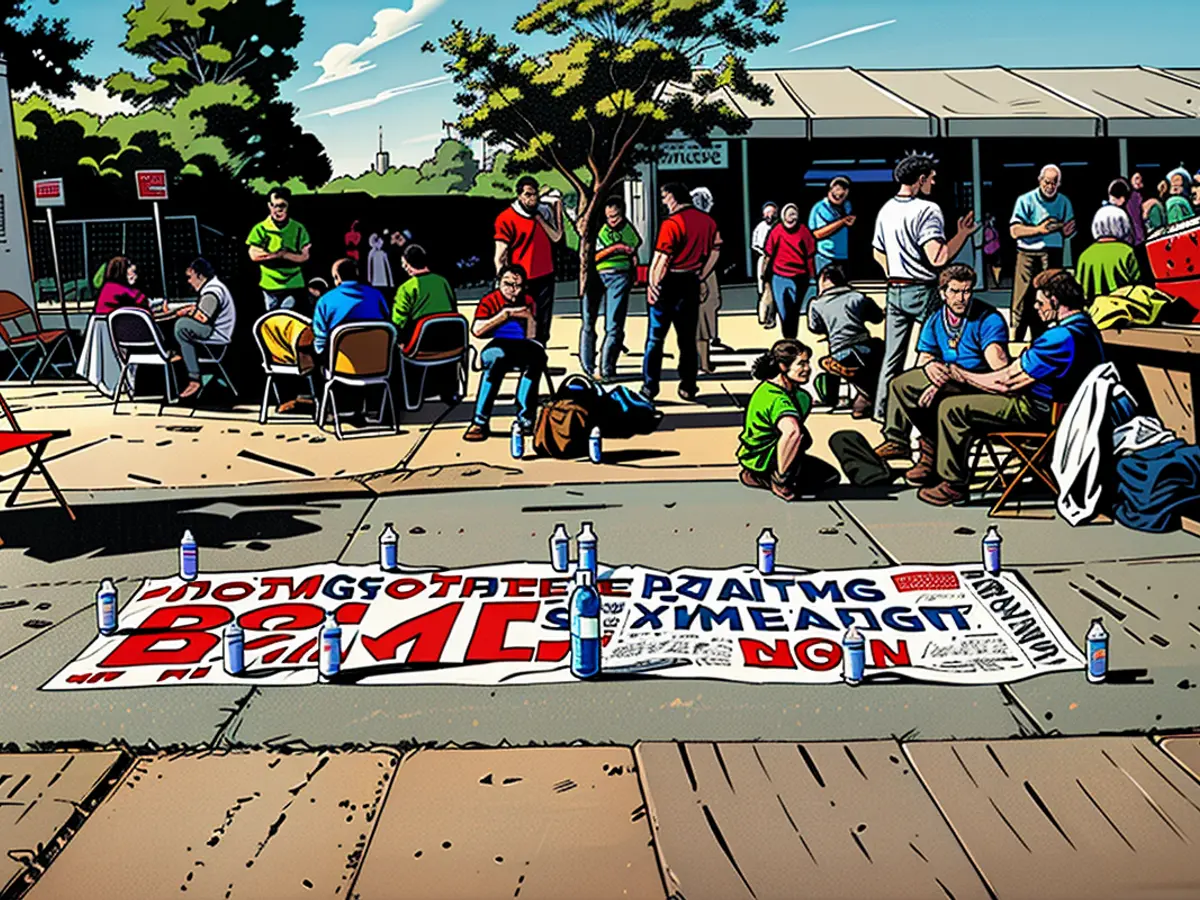Harris expresses deep concern over the distressing violence in Gaza, underlines his backing for negotiated releases of hostages and truces.
Harris stated that, as president, she would uphold the US partnership with Israel, guaranteeing its self-defense capabilities. She denounced the Hamas aggressions against Israel on October 7 but also recognized the hardships endured by Palestinians in Gaza during Israel's military engagement in the region.
"The turmoil in Gaza over the past 10 months has been devastating. Tens of thousands of innocent lives have been lost, and numerous individuals are forced to flee their homes continually due to the intense despair and hunger. The magnitude of suffering is heart-wrenching," she declared. "President Biden and I are relentlessly working towards ending this conflict, ensuring Israel's security, liberating the hostages, bringing an end to the suffering in Gaza, and enabling the Palestinian population to realize their right to dignity, security, freedom, and self-determination."
Over 40,000 lives have reportedly been lost in Gaza since October 7, according to local health authorities.
Harris' remarks on Thursday align with the administration's stance on the conflict, although she did not bring up the U.S.'s role in arming Israel. Nevertheless, her statements at such a large gathering represented the most extensive stance she's taken on the matter and her most explicit support for Palestinian self-determination since becoming a prominent figure in the Democratic party.
Both Biden and Harris have expressed support for a two-state resolution.
As the convention commenced, pro-Palestinian activists consistently advocated for a greater representation of their cause within the proceedings. Meanwhile, others demonstrated outside the United Center, criticizing Harris and Democrats for not taking adequate measures to secure a lasting ceasefire.
The Uncommitted National Movement, which arose during the Democratic presidential primary in opposition to the Biden administration's support for Israel's military operations in Gaza, called on the Harris campaign to permit a speaking slot for a Palestinian American at the convention. The movement then staged a sit-in outside the convention when their request was denied. Eventually, the delegates ended the sit-in and attended Harris' speech, albeit making another demand for her to engage with Palestinian American families in key battleground states by September 15.
"Refusing to meet their request would be disastrous for her campaign and damaging to her efforts to combat fascism and authoritarianism in November, as they are crucial components of her voter base," said Uncommitted co-founder Layla Elabed, a Palestinian American and the sister of Michigan Rep. Rashida Tlaib.
Criticizing the DNC and the Harris campaign, Elabed acknowledged the delegates had no intention of disrupting the proceedings preceding or during Harris' acceptance speech. Additional activists, however, contended that Democratic Party leaders had only hampered their cause by disregarding the Uncommitted leaders' modest request for a speaking slot for a Palestinian American at the convention.
"I feel sorry for them due to their outdated perspectives that are not in line with the majority of Democratic voters, who believe that Palestinian human rights are a top priority," noted Uncommitted co-founder Abbas Alawieh.
In response to the ongoing conflict, Harris called for efforts to end the violence, secure Israel's safety, and support Palestinian self-determination. Despite this, criticism arose from pro-Palestinian activists who advocated for more representation of their cause and a speaking slot for a Palestinian American at the Democratic convention.








